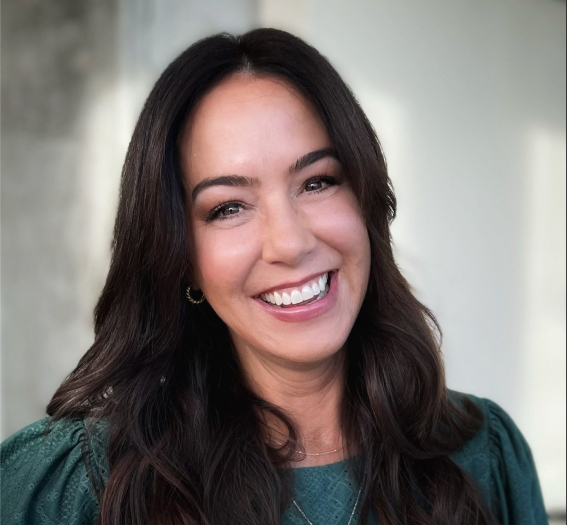
ALS community stories
Each person’s experience with ALS is different and comes with a unique set of challenges that spark inspiration and hope. It is through sharing these experiences that we can help one another.
Improving the quality of life for ALS patients through Speech and Language Pathology (SLP)
February 26, 2024

In this article, the role of a SLP expert and options for someone living with ALS are explored as part of the larger multidisciplinary care team
Many people living with ALS experience difficulties with their speech or swallowing as the disease progresses and begins to affect their ability to control the muscles used for these activities.i However, a SLP can assist people living with ALS to improve their ability to swallow safely, as well as implement techniques to make communication easier, allowing them to maintain their independence and quality of life for as long as possible.
SLP experts, like Kerry Adams, play an integral role in supporting the ALS community. Kerry has been working with ALS patients in Alberta since 2006, through her practice at the Kaye Edmonton Clinic.
Speech and swallowing are affected when the motor nerves in the brainstem degenerate due to ALS, resulting in reduced communication from those nerves to muscles in the face, lips, tongue, jaw, soft palate and larynx.ii
This can lead to dysarthria, which is difficulty speaking, and possibly anarthria, the complete loss of speech, Kerry explained. Weakened muscles can also result in challenges in consuming food, decreased respiratory function with increased risk of aspiration from impaired swallowing (dysphagia), she added.
Speech and language pathologists support patients throughout their ALS journey, by assessing their needs and developing personalized strategies depending on the progression of their disease.
SLP support can be in the form of Expiratory Muscle Strength Training (EMST) to improve the movement and strength of the swallowing muscles to help clear food and drink through the throat.iii Augmentative and Alternative Communication (AAC) is another SLP service that allows those who have lost their speech to communicate through methods such as letter boards, mobile apps and/or speech-generating devices.iv
“There is so much more to SLP than just handing out an app or letter board. You need to be involved in that person’s life – who they are, how they communicate, why they communicate, understanding there is more to communication than asking for their glasses and a drink of water.”
– Kerry Adams, Speech and Language Pathologist
While providing SLP services is essential to improving the quality of life of people living with ALS, Kerry and others in her profession do so much more. Offering ongoing emotional and psychological support to patients and their loved ones is also a key part of the job.
“Kerry’s presence exudes compassion and love with a fun dash of humour. The room lights up when she walks in. SLP services are essential to the care and quality of life of an ALS patient and I am grateful for it.”
– Susan Fox, ALS patient
Kerry counselled Susan through the difficult process of losing her ability to swallow, offering insights on how to maintain nutrition, such as what to eat. “When the time came to have a Percutaneous Endoscopic Gastrostomy (feeding tube), she walked me through the process and made it a positive decision. I’m so grateful for it,” Susan explained. “She helped me through losing my voice, it was scary for me. She taught me how to use a text-to-speech app that has been a priceless option for me. It’s my voice now.”
Another one of Kerry’s patients was struggling with the reality of losing his speech, which impacted his personal and professional life. Through SLP support, he was able to regain aspects of his daily life, including leading presentations at work.
“I have found my passion and after 17 years I am not even remotely tired of my job. I love it and I love helping people gain some of that quality back,” Kerry explained.
Kerry stresses that it’s important for people living with ALS to see an SLP as early as possible following their diagnosis. Some SLP strategies such as voice banking, which can later be used to create a custom synthesized voice based on samples of a person’s speech, should be undertaken as soon as possible while a person still has their strongest voice.v
“Close collaboration between physicians and SLPs is essential for people living with ALS,” stresses Kerry. “Referral to an SLP immediately following an ALS diagnosis can make a meaningful difference for people impacted by this progressive disease, enabling them to maintain their independence longer.”
i ALS Association. Virginia: Navigating ALS; c2023. Accessed on November 17, 2023. Managing Speech and Swallowing Changes.
Available from: https://www.als.org/navigating-als/living-with-als/therapies-care/managing-speech-swallowing-changes
ii University of Washington Medical Center, Neuromuscular Clinic for Swallowing and Speech Disorders. Washington: Patient Education; c2001. Accessed on November 17, 2023. How Speech and Swallowing are Affected with ALS.
Available from: https://healthonline.washington.edu/sites/default/files/record_pdfs/HowSpeechSwallowingAffectedALS8_01.pdf
iii NHS Cambridge University Hospitals. Cambridge: Expiratory Muscle Strength Training (EMST); c2023. Accessed on November 17, 2023. What is Expiratory Muscle Strength Training?
Available from: https://www.cuh.nhs.uk/patient-information/expiratory-muscle-strength-training-emst
iv ASHA. American Speech-Language-Hearing Association. Maryland: Augmentative and Alternative Communication (AAC); c2023. Accessed on November 17, 2023. About AAC.
Available from: https://www.asha.org/public/speech/disorders/aac
v ALS Association. Virginia: Navigating ALS; c2023. Accessed on November 17, 2023. FYI: A Guide to Voice Banking Services.
Available from: https://www.als.org/navigating-als/resources/fyi-guide-voice-banking-services
